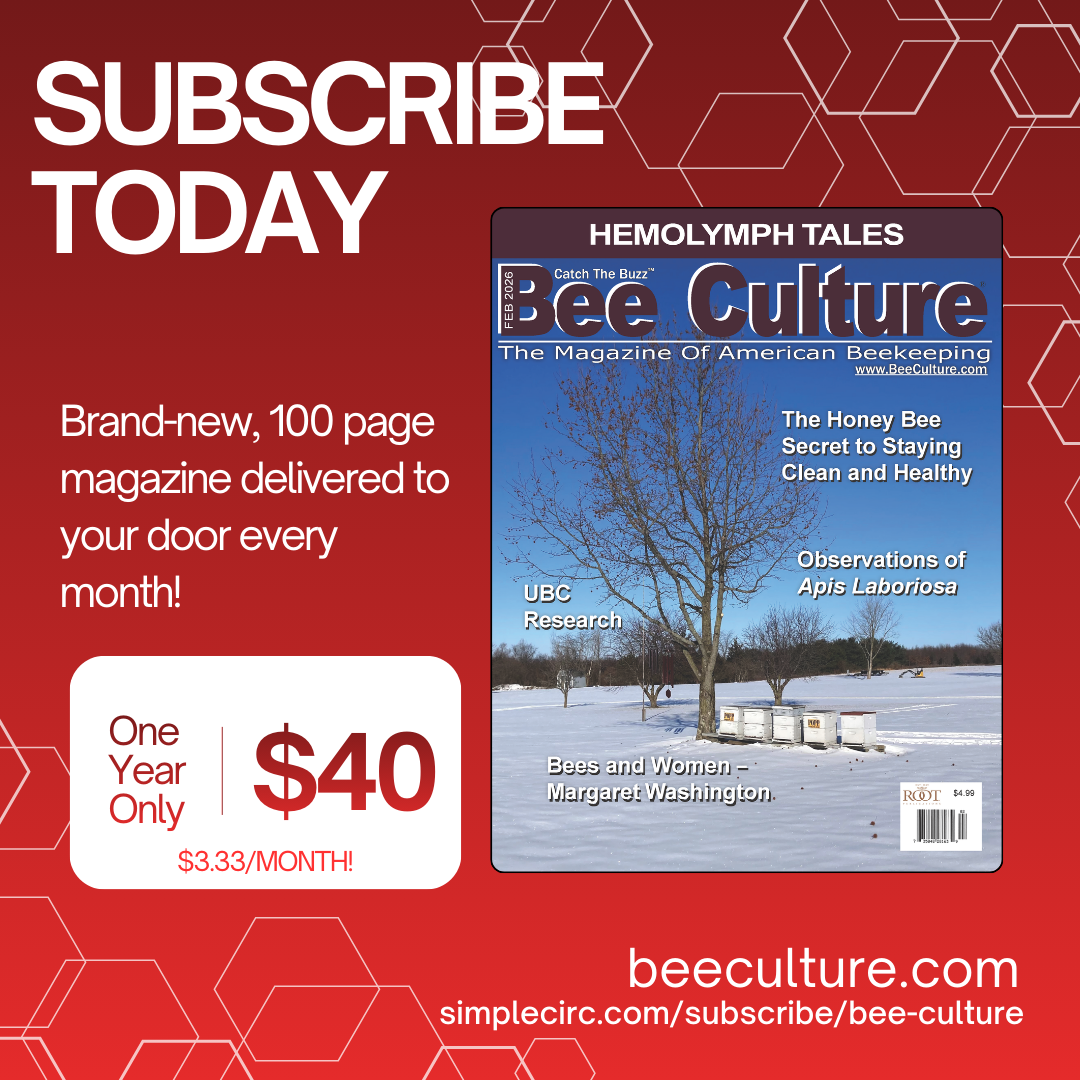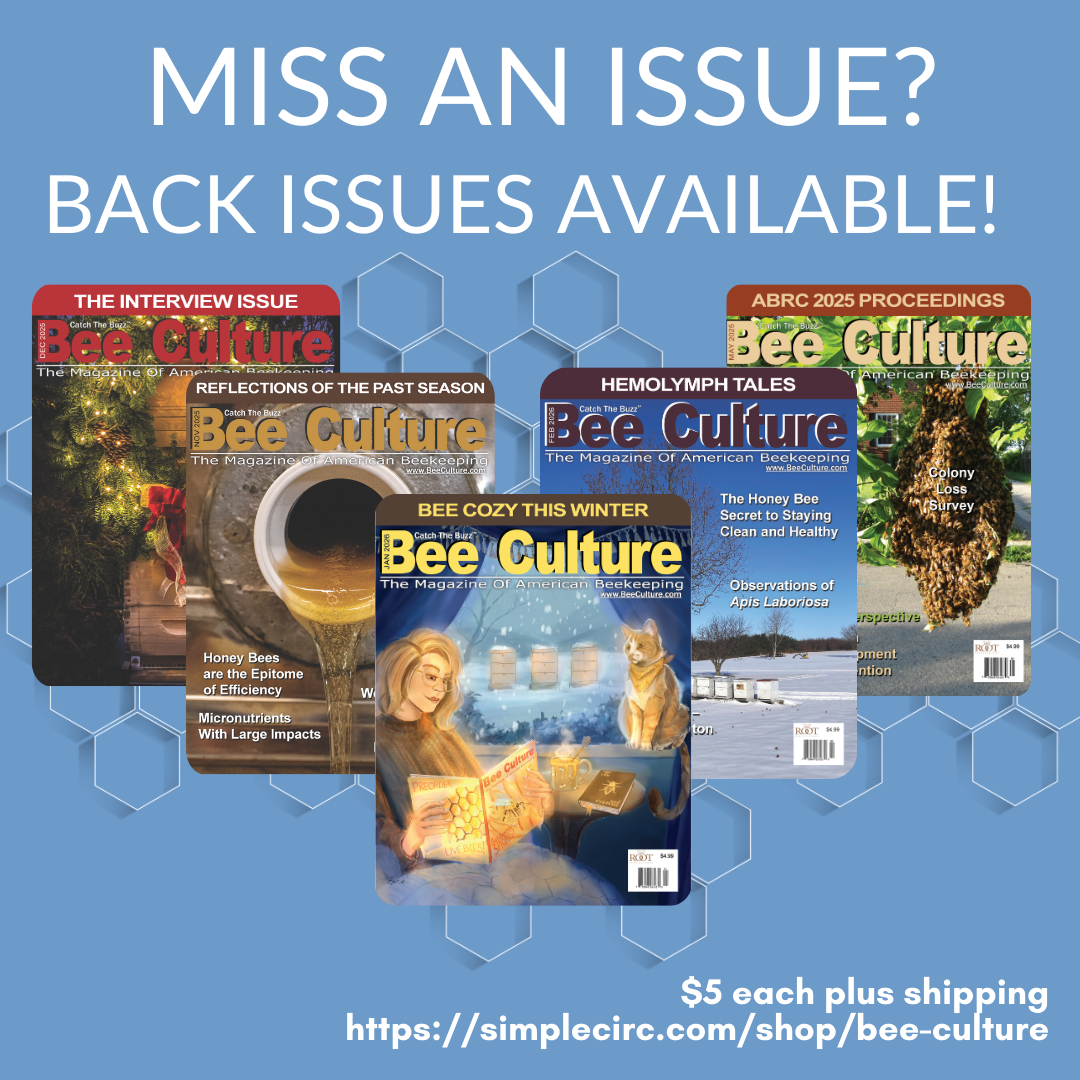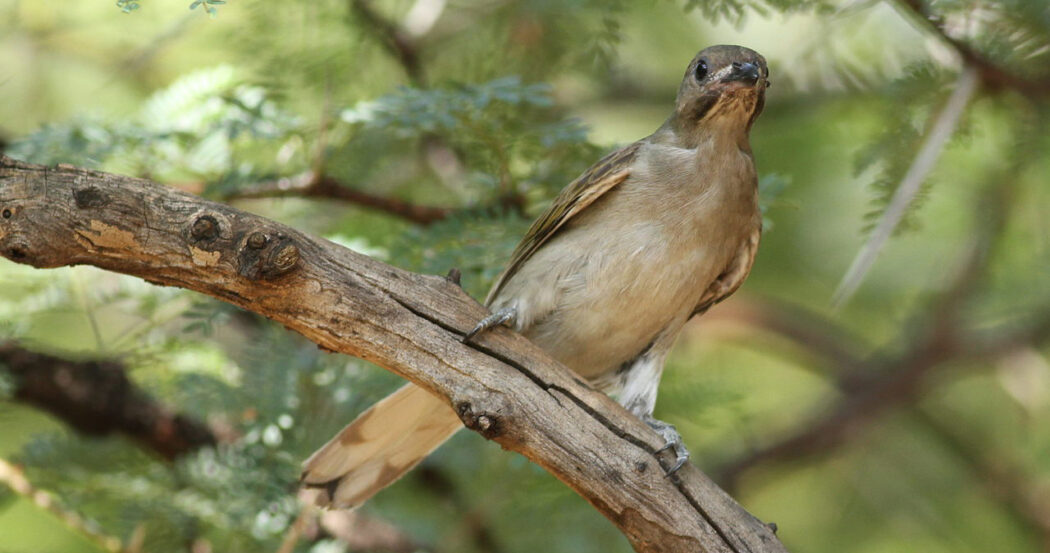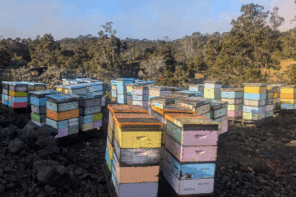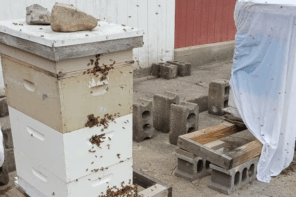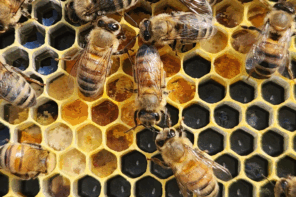Click Here if you listened. We’d love to know what you think. There is even a spot for feedback!
Read along below!
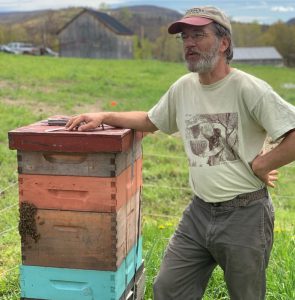
Hopeful Future
By: Ross Conrad
Thoughts on building a healthier
beekeeping future – It can be easy for beekeepers to become discouraged these days, but there are reasons to be optimistic and to keep the faith especially when we resolve to learn from nature.
In previous articles I have pointed out the immense life-threatening problems that we face: from the burning of fossil fuels, the reliance on toxic pesticides in agriculture, the dramatic decline in biodiversity and the extractive economic system that helps drive it all. It can be hard to wrap our heads around the fact that our current approach to life will have to end if we are going to have any chance of survival in the long run. It is difficult to visualize such a transition and what the potential future might look like on the other side.
Despite the monumentally overwhelming challenges that we collectively face, many of the answers to our dilemmas are all around us. By paying attention to them, we just might create a foundation strong enough to stare down the apocalypse – even when it means facing catastrophic bee losses.
Perspectives that help or hinder collaboration
Underlying our current techno-agricultural era are several illusions that often serve to interfere with a healthy collaboration between beekeepers and bees.
The first is that we are separate from the earth and we are its masters, rulers and owners and can manipulate the planet and its life-forms as we see fit. This outlook views the world like a pyramid with man at the top and everything else below us. The reality is that the world is more like a circle with each form of life playing a role in the maintenance and preservation of the whole. Humans are not separate from nature but part of nature. Everything in the natural world, including us, has evolved with reciprocal relationships. Our disconnection from the natural world is foundational to our problems in that it supports and reinforces additional illusions.
For example, another illusion is that the earth and the natural world are simply a collection of raw materials that have value only when extracted and exploited for profit. Bees are valued for the benefits they render to humans. From providing pollination services and hive products, becoming a vehicle for earning income or as a teaching tool on subjects such as biology and entomology, bees are valued because of their use in obtaining human objectives. However, as the indigenous people pointed out many years ago “when the last tree is cut, the last fish is caught, and the last river is polluted; when to breath the air is sickening, you will realize, too late, that wealth is not in bank accounts and that you cannot eat money.”
A third illusion is that the earth’s “resources” are primarily meant for human use, and that we and our needs are superior to that of other species which can be owned, engineered, exploited and manipulated to meet our needs and desires. This perspective can prevent recognition that honey bees have intrinsic value on their own, independent of humans. The honey bees’ worth is fundamental to their being. Their value stems from their essential nature which among other things includes being a food source for other organisms, and evolving into one of the primary plant pollinators on the planet. We forget to our peril that nature is an interconnected web of life in which each strand of the web has an impact on all the other strands.
We tend to also hold the mistaken belief that indigenous cultures who respect the laws of nature are backward, undeveloped and primitive and need us to help “civilize” them. It turns out that most of the places in the world where indigenous cultures still exist and practice their traditional ways of life, are not seeing the extreme levels of biodiversity loss that the rest of the developed world is experiencing. The reality is that we can learn a lot for our indigenous brothers and sisters. Many indigenous people have experienced apocalypse already. They have been decimated through genocidal actions, but have learned to survive. They have persevered by adapting and evolving their culture – in a sense they ended up creating a new world.
It is important for beekeepers to be able to recognize the value provided by bees through cultivating and nurturing the interaction and relationship between the beekeeper and their hives. Whether it is a spiritual connection, a feeling of being closer to nature, or simply the calming, tension dissolving effect that a happy healthy hive imparts upon the observer as the bees go about their daily routines, learning to breakdown the illusion of separation between bee and beekeeper will go far in helping us to heal our relationship with the natural world.
Honey bee stewardship
Stewardship is defined as an individual’s responsibility to manage one’s life and property with proper regard to the rights of others. (Merriam-Webster, 1977) Rather than be performed in isolation, honey bee stewardship requires a meaningful and sustained connection be built between people and bees. This compels us to show a level of respect in taking the “other” into account. Unless we see ourselves as being an integral part of the wider global ecological system, it is difficult to care about respecting and protecting pollinators like bees beyond the benefits they provide us. However, such meaningful relationships and partnerships with the natural world can be learned, rediscovered and passed along from beekeeper to beekeeper, generation to generation.
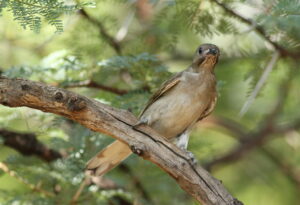
“The African honeyguide is just one example of inter-species cooperation that includes ants and aphids, oxpeckers and large mammals like rhinoceroses and giraffes, wolves and ravens, and clownfish and sea anemones. Image by Derek Keats from Johannesburg, South Africa, CC BY 2.0 https://creativecommons.org/licenses/by/2.0, via Wikimedia Commons.”
Honey bee/beekeeper collaboration
Nature is full of examples of successful intra and inter-species collaborative relationships where species benefit from their interaction with each other. Schools of fish, flocks of birds, herds of ruminants, and packs of wolves are examples where an individual’s chances of survival are greatly increased through cooperating and collaborating with others of their own species. There are also numerous examples of inter-species cooperation such as the African honeyguide bird that will lead people to wild bee hives. In return the honey hunter shares some of the honey and brood from the hive with the bird. Our natural world is full of examples of promising strategies to both better understand and model sustained collaborative relationships that we can learn from.
Humans in their capacity as beekeepers, have been helping honey bees to maintain and even grow their populations in many parts of the world. We have also helped to spread the honey bee far beyond its native habitats so that today it occupies every habitable continent in the world. In return the bees are providing humans with pollination services, and valuable bee products such as honey, beeswax, propolis, pollen, and bee venom.
Survival during a difficult and uncertain future
Whenever something dies, it provides resources for others and in many cases is the beginning of something new and wonderful. For example, as long as they don’t die from foulbrood, or acute chemical poisoning, dead honey bee hives can be a source of food for other colonies in the area that rob out the dead hive. The remains of a dead colony can also provide previously built comb for swarms that allow them to get a head start on nest construction, increasing their chances of developing to the point where they can survive the dearth of Winter. Even foulbrood infested colonies become food for wax moths. Dead colonies also supply food for a host of other insects like ants, wasps, and native bees. Besides the indirect benefit of nourishing the ecosystem we depend on for our survival, a dead colony can benefit the beekeeper more directly by acting as educational example helping to teach us what not to do in the future.
Think globally, act locally
The challenges we have on the horizon will require us to shift away from a means-to-an-end focus, to relational-values where stewardship is based within a local context but encompasses a global outlook. We will have to get good at coping with loss and grief as we forge ahead into the future we’ve created where a sense of certainty is a luxury of the past. By building and nurturing community, we can cultivate the strength and resilience we will need to successfully navigate the challenging times ahead. We will need to forge new relationships where we ask not just what the bees can do for us, but what we can do perhaps in collaboration with other beekeepers, with and for the bees.
The beekeeping industry already has a strong community foundation upon which to build in the form of many local, state, regional and national beekeeping clubs, guilds, associations and societies. These are a mix of both small and large membership organizations, spanning the entire United States and in many other places around the world, serving a variety of commercial, side line and backyard beekeeping interests.
Beekeeping organization member benefits already span a wide range of areas from coordinating nuc/package/equipment access and deliveries, and facilitating the transfer of knowledge and information through, presentations, workshops, classes, webinars, and lending libraries, to networking opportunities and government lobbying.
The new paradigm we have to create will need to foster a belief in living and working for the good of others and the planet. Adopting this bigger focus can help create an unshakable hope that will be vital for maintaining purpose and commitment as the state of honey bee health ebbs and flows. I am not referring to hope as being defined as an attachment to a certain outcome and if it doesn’t happen you feel like a failure. It’s more about working for something greater than ourselves. Such an outlook creates hopefulness and motivation to allow one to persevere and do the right thing no matter what happens. Even if we have to work towards a place where honey bees can thrive knowing that we may never see that place ourselves, but there is the possibility that someone will in the future: that creates a powerful form of hope.
Change in nature is a constant. As beekeepers it would be wise for us to be attuned to change around us as we learn to let go of the things we think we need and that will have to die for us to move forward. To do this we need a hopefulness that is much larger than the outcome. To help us achieve this it will be helpful to adopt a perspective that allows us to approach each day with boundless appreciation and gratitude rather than scarcity, fear and challenge. Afterall the majority of the problems we face are not so much science or technical problems but ethical, social, political, economic and spiritual problems. We can’t address it all, but we can address something and it is important for each of us to do what we can.

